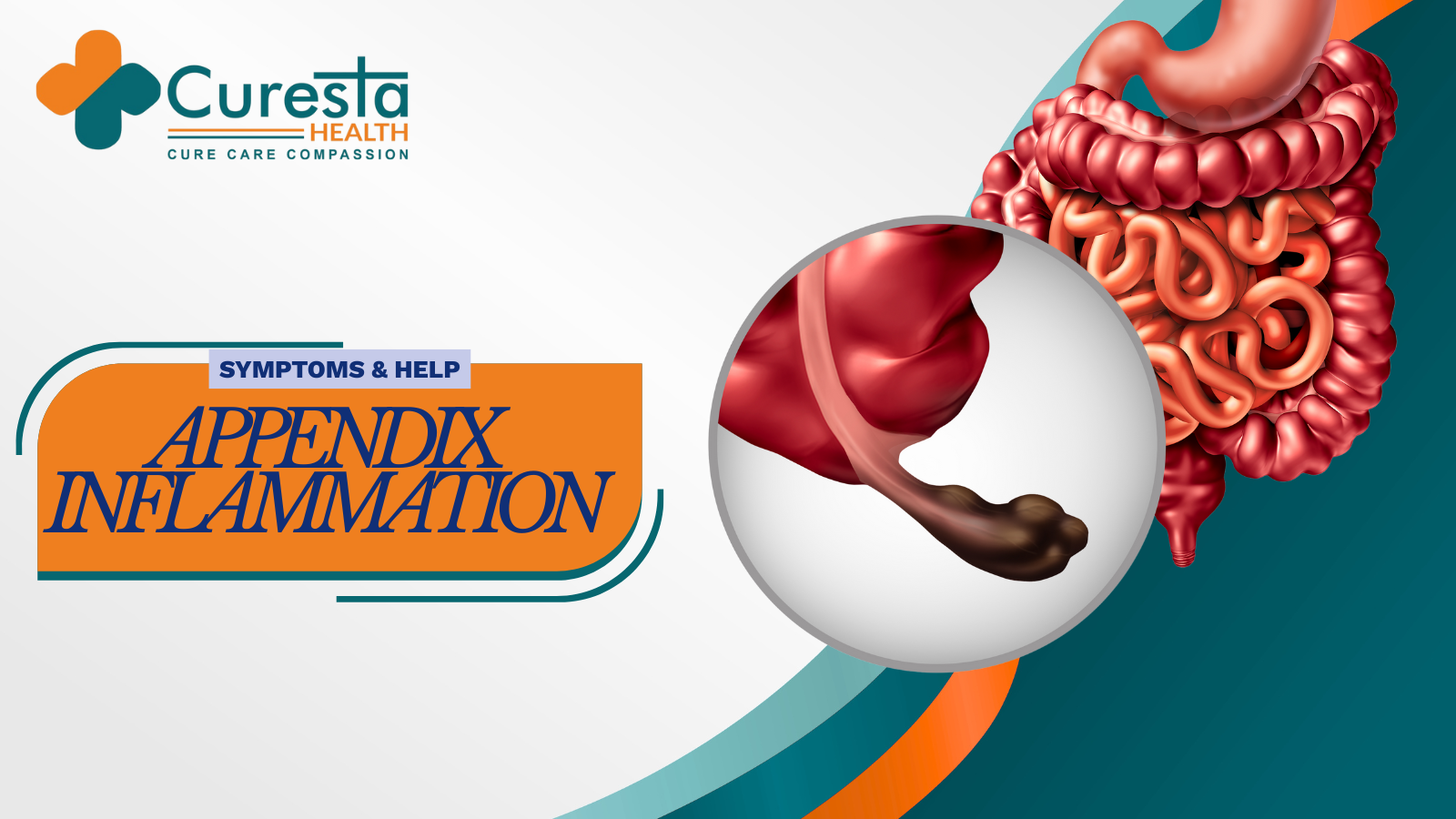



Appendicitis, or appendix inflammation, occurs when the appendix becomes swollen or infected. While it can affect anyone, early recognition is critical. Prompt treatment prevents severe complications such as a ruptured appendix or peritonitis, which can be life-threatening. Understanding the causes, symptoms, and treatment options can save lives and make recovery smoother.
This blog aims to help you identify the early signs and symptoms of appendicitis, understand the common causes of appendix inflammation, and know when to seek medical attention, ensuring timely care and preventing serious complications.
The appendix is a small pouch attached to the large intestine. Inflammation of the appendix, known as appendicitis, can cause severe abdominal pain and digestive discomfort. Although the appendix has no essential function, inflammation can escalate quickly into a serious medical emergency if untreated.
Early detection is crucial because a ruptured appendix can lead to peritonitis (infection of the abdominal lining) and sepsis, both of which are life-threatening. Recognising the signs of appendicitis ensures timely medical care.
Appendicitis typically occurs due to an obstruction in the appendix, which may happen because of:
These factors can trigger bacterial growth, inflammation, and eventual infection.
Appendicitis symptoms vary but usually include:
Seek help if you experience:
Delay in treatment can lead to perforation, peritonitis, and life-threatening sepsis.
Doctors diagnose appendicitis through:
Treatment depends on severity:
Antibiotics and Observation
Appendectomy
Surgical removal of the appendix is the most common treatment:
Post-Surgery Recovery:
Antibiotics Alone
While appendicitis cannot be guaranteed to prevent, some steps may help:
Prompt recognition and treatment are the most essential preventive measures.
Recognising the early symptoms of appendix inflammation is essential to prevent severe health risks. Persistent abdominal pain, nausea, fever, and changes in bowel habits should never be ignored. Timely medical attention can prevent a ruptured appendix, peritonitis, and other life-threatening complications. Early detection, proper treatment, and awareness of the warning signs are crucial for a safe and smooth recovery.
If you are experiencing severe abdominal pain or any signs of appendicitis, don’t wait. Curesta Health is here to provide expert evaluation, accurate diagnosis, and effective treatment to prevent complications like rupture or peritonitis. Our team of specialists ensures timely care and a safe recovery. Early intervention saves lives. Book your appointment with Curesta Health today.